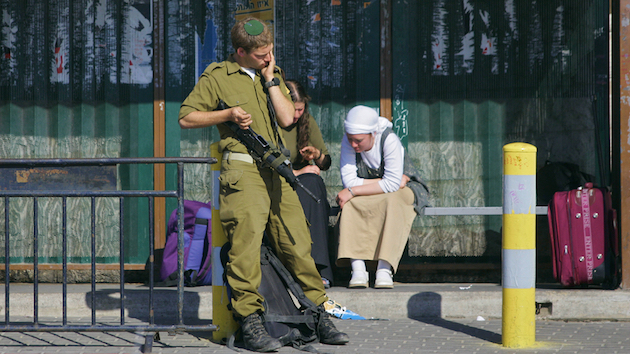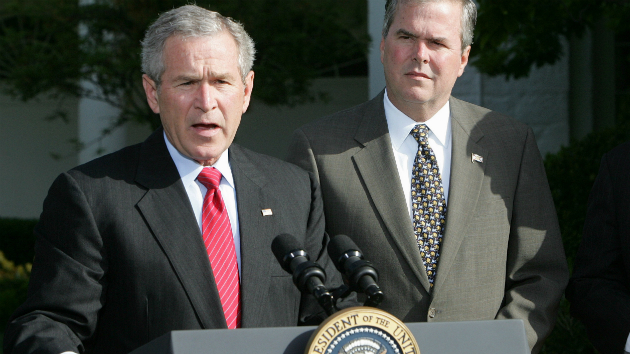
<a href="http://www.shutterstock.com/gallery-70198p1.html?cr=00&pl=edit-00">Vasily Smirnov</a> / <a href="http://www.shutterstock.com/editorial?cr=00&pl=edit-00">Shutterstock.com</a>
After a violent cycle of Palestinian attacks and Israeli military crackdowns this month, the death toll in Israel and the Occupied Territories stands at eight Israelis and 44 Palestinians. As the violence continues, Israel has sealed off East Jerusalem neighborhoods and run nightly police raids there. Plus, Israel has widened its military operations in the West Bank and Gaza.
Now, a new development has emerged. Encouraged by public officials, Israeli civilians are lining up at gun stores in droves to arm themselves, and the National Rifle Association is cheering them on.
Earlier this month, Jerusalem Mayor Nir Barkat called on Israeli citizens who own guns to carry them at all times. Last Wednesday, Israeli Public Security Minister Gilad Erdan eased restrictions on gun permits, allowing more military officers, police officers, and civilians with weapons training to own private handguns. The next day, 8,000 Israelis filed permit requests with the Public Security Ministry—which typically processes about 200 requests per day. Uri David, an Israeli importer of Glocks, told Haaretz that demand for pistols had increased by 50 percent, while gun shop owners have reported similar trends.
The NRA is applauding the shift. On Friday, its lobbying wing, known as the Institute for Legislative Action, published an extended article celebrating Israeli citizens and their government for the relaxed policies.
“Some seeking arms recognize that the effects of carrying go well beyond their own personal safety,” the ILA said.
Some fear that more handguns on the streets will fuel vigilante justice. A 29-year-old Eritrean immigrant, Haftan Zarhoum, was killed on Sunday after being shot by a security guard and beaten by a mob. The guard and mob had mistaken Zarhoum for an Arab gunman who had just opened fire in a bus station.
Israeli Prime Minister Benjamin Netanyahu warned Israelis against vigilantism on Monday. “We’re a nation of laws. No one may take the law into their hands. That’s the first rule,” he said.
Greater availability of firearms may also undermine a successful effort to prevent suicide among Israeli soldiers. The Israeli Defense Forces, which conscripts 18- to 21-year-olds, barred soldiers in 2006 from taking their guns home with them on weekend leave. After the change, the IDF reported a 40 percent drop in suicide rates among young soldiers, from 28 suicides per year to 17.
It was “an achievement unparalleled by any other means of suicide prevention,” the study’s authors wrote. “This might indicate that easy access to firearms might increase rates of impulsive suicide attempts, whereas the need to plan, at least somewhat, other means of suicide might deter some from committing suicide.”
This story has been updated.

















